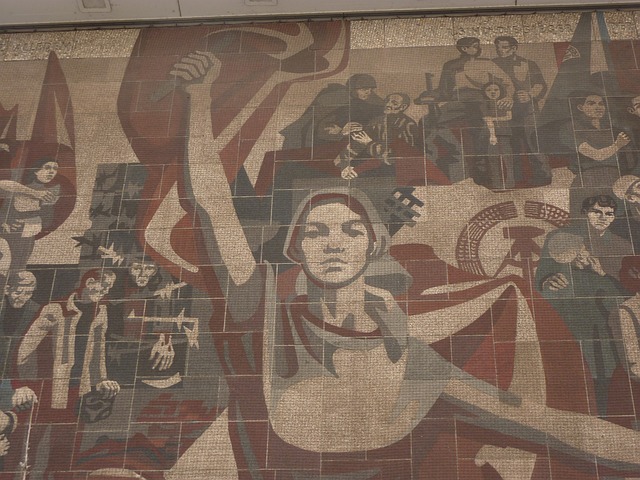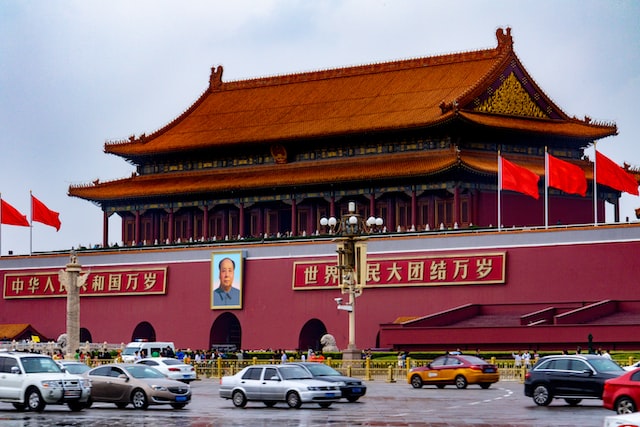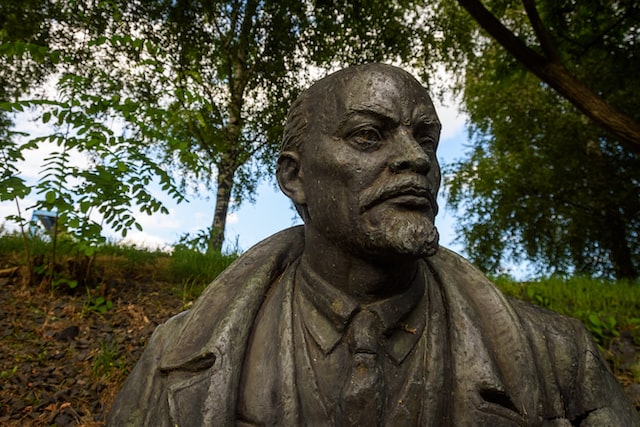Communism and socialism are both political ideologies that advocate for the collective ownership and control of the means of production, with the goal of achieving a classless society. The main difference between the two is that communism calls for a revolutionary overthrow of capitalist societies and the establishment of a dictatorship of the proletariat, while socialism aims to achieve this goal through gradual reform and democratic means.
Definition of communism
(Image by Dave Noonan from Pixabay )

The word “communism” has many different meanings, but the most common definition is an economic and political system in which property and resources are owned by the community as a whole, and not by individuals. In a communist society, there would be no private ownership of land, businesses, or other resources; instead, everyone would share in the benefits of these resources equally.
The idea of communism has been around for centuries, but it was first formally outlined by Karl Marx in the mid-19th century. Marx believed that capitalism—an economic system in which private individuals own businesses and control production—would eventually lead to class conflict between rich and poor. He thought that this conflict would eventually lead to a revolution in which the working class would overthrow the wealthy capitalists and take control of the means of production. Once the workers were in power, Marx believed that they would eliminate private property and create an equal society where everyone worked for the good of the community rather than for their own personal gain.
While Marx’s ideas about communism have influenced many different political movements over the years, actual communist societies have been rare. The best-known example is probably the Union of Soviet Socialist Republics (USSR), which was established in 1917 after Russia’s Bolshevik Revolution. The USSR contained a number of different socialist republics, each with its own government, but they were all united under a central Communist Party leadership. The USSR lasted for more than 70 years before it collapsed.
What is the difference between Marxism and communalism?
Marxism is a political and economic theory originated by Karl Marx, which focuses on the struggle between capitalists and the working class. Communalism, on the other hand, is a social theory which advocates for the sharing of resources and property among a community.
Definition of socialism
Socialism is an economic and political system in which the means of production are owned by the community as a whole and economic activity is regulated by the government. In a socialist economy, there is no private ownership of property or businesses; instead, the community owns and manages these resources. The ultimate goal of socialism is to create a society in which all people are equal and have access to the same opportunities, regardless of their social class or economic status.
Difference between communists and socialists
Though both communists and socialists seek a society without classes, they have different conceptions of how to achieve this. For communists, the only way to achieve a classless society is through revolution—a violent overthrow of the current government, followed by the establishment of a dictatorship of the proletariat. Under this system, all private property would be abolished and everyone would work for the common good.
Socialists, on the other hand, believe that change can happen gradually through reform. They don’t advocate for overthrowing the government, but instead work within the existing system to bring about change. Socialists believe in public ownership of some key industries (like healthcare and education) and in redistributing wealth so that everyone has a more equal share.
Examples of communist and socialist countries
There are many different types of communist and socialist countries, each with their own unique history and government. Here are a few examples:
The Soviet Union was a federal union of 15 republics that existed from 1922 to 1991. The Soviet Union was the first country to declare itself officially communist, and its government was based on the principles of Marxism-Leninism.
China is the world’s most populous country and has been ruled by the Communist Party of China since 1949. The Chinese government follows the principles of Marxism-Leninism, and its economic system is based on state ownership of industry and collectivized agriculture.
Cuba is an island country located in the Caribbean Sea. It has been ruled by the Communist Party of Cuba since 1959, and its government follows Marxist-Leninist ideology. Cuba’s economy is centrally planned, with a focus on heavy industry and agriculture.
North Korea is a sovereign state located in East Asia. It has been ruled by the Workers’ Party of Korea since 1948, and its government follows Juche ideology (a mix of Marxism-Leninism and Korean nationalism). North Korea’s economy is centrally planned, with a focus on heavy industry and military production.
Is China a communist or socialist country?
(Photo by Nick Fewings on Unsplash )

It is often said that China is a communist country, but this is not strictly true. While the Chinese government does espouse some communist ideals, it also practices a form of socialism. So, what is the difference between these two political ideologies?
Simply put, communism is a more extreme form of socialism. Both communists and socialists believe in public ownership of resources and the distribution of wealth based on need rather than merit. However, communists also advocate for a classless society in which there is no government or private property. In theory, everyone is equal and works together for the common good.
In contrast, socialism allows for private property and a limited amount of inequality. Socialists believe that it is possible to have a fair distribution of wealth without abolishing all private ownership. They also believe that government can play a role in ensuring that everyone has access to basic needs like healthcare and education.
So, while China does have some communist policies, it is not a purely communist country. However, it is worth noting that China’s brand of socialism has been increasingly capitalist in recent years.
What countries are communist or socialist?
The debate between socialists and communists dates back to the late 19th century, when both groups emerged as leading political philosophies. Both philosophies advocate for a society that is free of class oppression and exploitation, but they differ in their vision for how to achieve this goal.
Socialists believe that capitalism must be reformed in order to create a more just society. They advocate for government intervention in the economy, including things like regulating businesses and providing social welfare programs. Communists, on the other hand, believe that capitalism needs to be completely overthrown. They think that the only way to create a truly equal society is to have a government that owns all property and controls all aspects of production.
Today, there are many countries around the world that identify as communist or socialist. China is the most populous communist country, with about 1.4 billion people living under its rule. Cuba is another well-known communist country; it was founded in 1959 after Fidel Castro led a revolution against capitalist rule. Venezuela has been moving towards socialism in recent years; its current president, Nicolás Maduro, describes himself as a “21st century socialist.” There are also several socialist countries in Europe, including Denmark, Sweden, and Norway.
Who runs a socialist country?
The answer to this question is not as simple as it might seem. There are many different types of socialism, and each one has its own way of governing. Some socialist countries are run by a single party, while others have multiple parties that share power. Still others have no formal government at all, and instead rely on communal decision-making.
Who is the father of socialism?
The father of socialism is Karl Marx. He was a German philosopher and economist who wrote The Communist Manifesto in 1848. In it, he laid out his vision for a society in which the working class would overthrow the ruling class and create a more equal distribution of wealth.
What are the 3 main goals of socialism?
The three main goals of socialism are to
- Abolish private property and the exploitation of labor
- Establish social control of the means of production, distribution, and exchange
- Create a classless society.
What is fascism vs socialism?
Fascism and socialism are two different political ideologies. Fascism is a right-wing ideology that believes in putting the state above the individual, while socialism is a left-wing ideology that believes in putting the individual above the state.
Fascism is a political ideology that believes in using the government to control the economy and society. Fascists believe in a strong central government that can control the people and force them to obey the state. Fascism also includes a lot of nationalism, which means loving your country more than anything else. Finally, fascism promotes violence as a way to achieve its goals.
Socialism is also a political ideology that puts the individual above the state. Socialists believe that everyone should be treated equally and have the same opportunities. They also believe in democracy and worker’s rights. Unlike fascists, socialists do not believe in using violence to get what they want.
Featured Image By – Photo by Lian Begett on Unsplash








